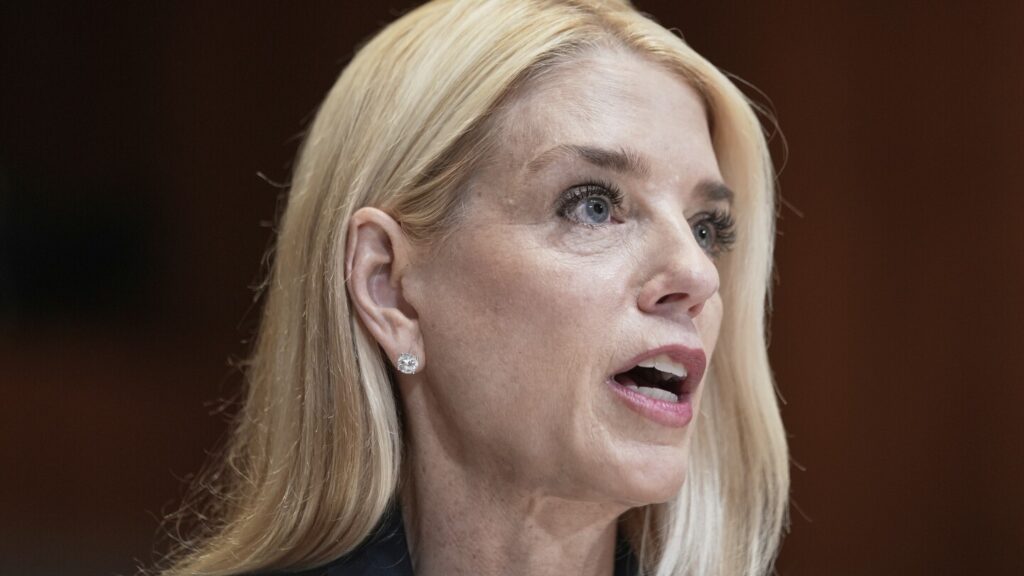
BALTIMORE – In a bold legal maneuver, the Trump administration has filed a lawsuit against federal judges in Maryland, contesting an order that halts the immediate deportation of detained immigrants who seek court hearings.
Breaking: Legal Battle Intensifies Over Immigration Policy
The lawsuit, lodged on Tuesday in Baltimore, targets the chief judge of the U.S. District Court in Maryland along with other judges, highlighting the administration’s ongoing struggle with the judiciary over immigration enforcement. The legal action underscores the administration’s determination to assert its immigration policies.
Immediate Impact
At the heart of the lawsuit is an order signed by Chief Judge George L. Russell III in May. This order prevents the administration from deporting immigrants who have filed paperwork with the Maryland district court for a review of their detention, delaying removal until 4 p.m. on the second business day after a habeas corpus petition is submitted.
“Defendants’ automatic injunction issues whether or not the alien needs or seeks emergency relief, whether or not the court has jurisdiction over the alien’s claims, and no matter how frivolous the alien’s claims may be,” the lawsuit states.
Key Details Emerge
The Trump administration argues that the Maryland court’s order violates a Supreme Court ruling and impedes presidential authority to enforce immigration laws. The lawsuit, naming the U.S. and the Department of Homeland Security as plaintiffs, seeks to overturn what it describes as judicial overreach.
Chief Deputy Clerk David Ciambruschini of the Maryland district court declined to comment on the lawsuit.
Industry Response
This legal confrontation is the latest in a series of clashes between the Trump administration and federal judges over deportation efforts. Notably, Judge Paula Xinis, one of the defendants, previously criticized the deportation of Kilmar Abrego Garcia to El Salvador as illegal, prompting calls for fines against the administration for contempt.
Attorney General Pam Bondi stated, “The American people elected President Trump to carry out his policy agenda: this pattern of judicial overreach undermines the democratic process and cannot be allowed to stand.”
By the Numbers
- 2 business days: Delay in deportation as per court order
- May: Month when the initial order was signed
- 1:1: Ratio of judges named in the lawsuit to those issuing the order
What Comes Next
The Trump administration has requested that the Maryland judges recuse themselves from the case, proposing that a federal judge from another state should preside over the matter. This move could set a precedent for future legal battles over immigration enforcement.
Background Context
The legal challenge arrives amid a broader context of the Trump administration’s aggressive immigration policies, which have frequently been contested in courts across the country. The administration’s stance has often led to conflicts with judicial orders, as seen in recent cases involving deportations to third countries.
Expert Analysis
Legal experts suggest that the lawsuit could have significant implications for the balance of power between the executive branch and the judiciary. The outcome may influence future immigration policy enforcement and judicial oversight.
Regional Implications
The Maryland court’s order aims to maintain existing conditions and ensure immigrant petitioners can participate in court proceedings. It also seeks to provide the government with ample opportunity to present its defense. However, the influx of habeas petitions has led to rushed hearings, complicating the court’s operations.
Russell’s amended order noted, “Obtaining clear and concrete information about the location and status of the petitioners is elusive.”
The unfolding legal drama in Maryland is poised to impact immigration enforcement strategies, potentially altering the landscape of judicial intervention in federal immigration policies. As the case progresses, its ramifications will likely resonate beyond the courtroom, influencing national discourse on immigration and executive authority.




